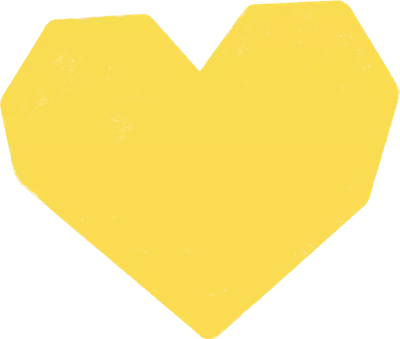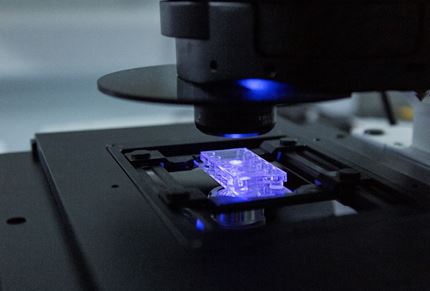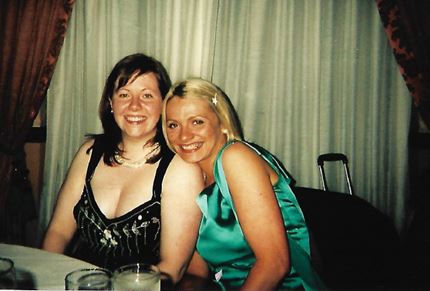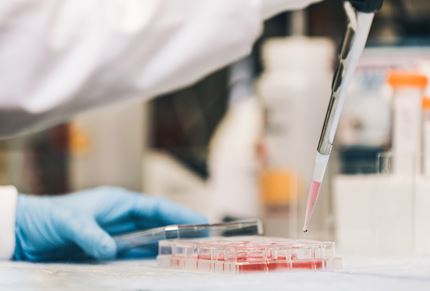I’m hopeful Matilda and I will have our happy ending, all thanks to lifesaving research
22nd May 2022
Victoria was just 34 when she was diagnosed with Stage 3 breast cancer. One year after her devastating diagnosis, Victoria credits research and early detection for saving her life and giving her a future with her little girl, Matilda.
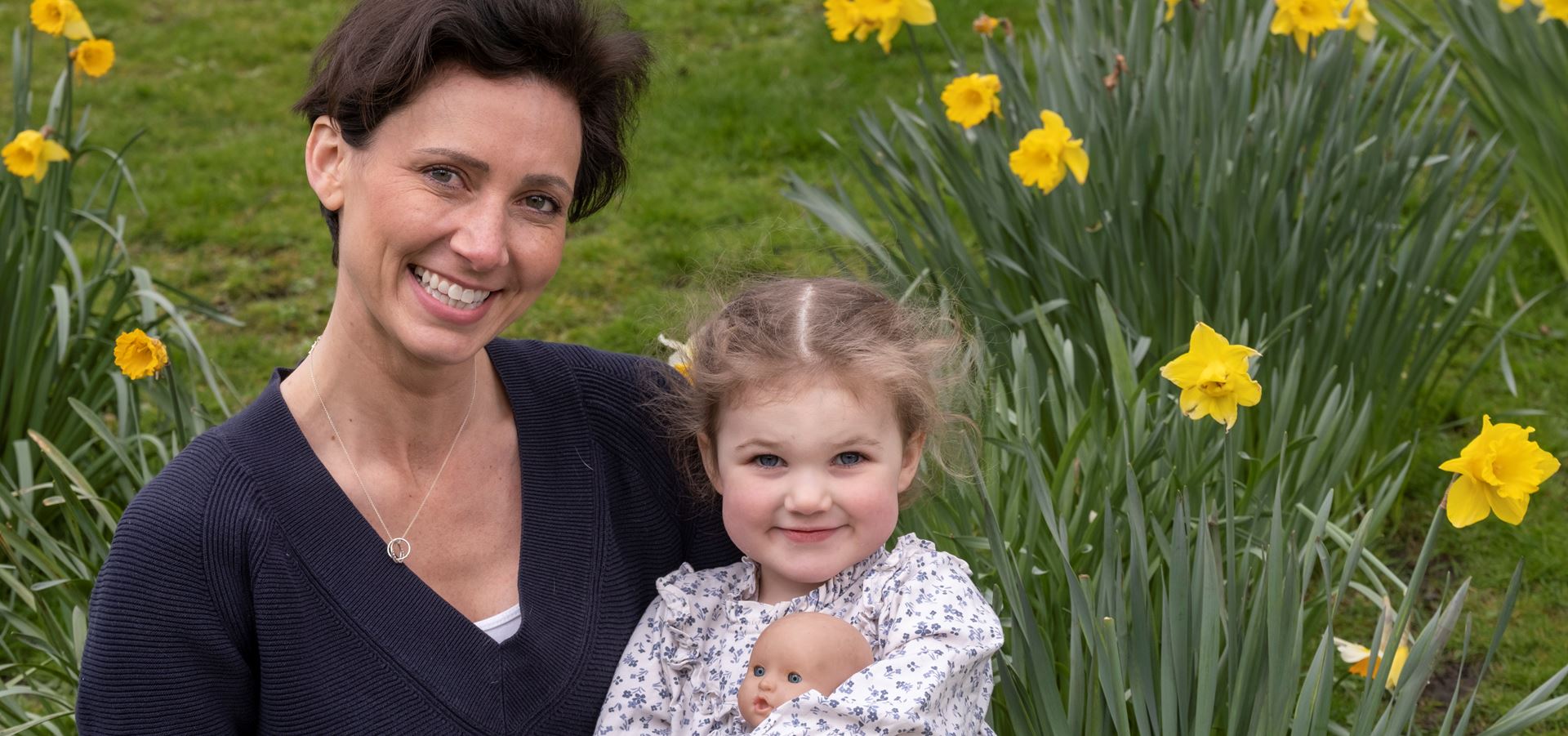
“Every time I catch a glimpse in the mirror, I’m reminded of everything I’ve been through this year and how my whole life has changed.”
I first noticed a mini marble-like lump in my breast in October 2020. I’ve always described my breasts as a bit ‘lumpy’ to my friends’ amusement, so I didn’t think too much of it. However, by November, this all changed.
My breast started to feel a little tender, and it was painful in my nipple if I did burpees at the gym or if I slept on my front. By this point, I knew something was wrong; however, we were in another mini-lockdown, and Covid-19 cases were rising, so it didn’t feel appropriate to seek medical support. Hindsight is a wonderful thing…
Before Christmas, I called my doctors and arranged an appointment for early January. Following this appointment, an urgent referral was made for the breast clinic later that month. On Thursday the 28th of January, I had my first appointment at the breast clinic, where I was given an ultrasound, two different types of mammograms, and nine biopsies were taken from my right breast.
I had no idea what was about to hit me and how much I was about to go through over the next 12 months.
The news came three hours later – I had cancer. There was no need to wait for the results from the biopsy as they could see enough evidence just in the scan.
I began a gruelling 14+months of treatment. My first day of chemotherapy felt like I was one step closer or fighting this. By the time I got home, I was feeling emotionally exhausted but physically fine.
I had a port fitted in my chest to make the infusion process a little easier. This meant my treatment took 25 minutes rather than sitting in the hospital for hours. I was incredibly grateful for this option as it allowed me to enjoy time with Matilda.
During the early days of my treatment, I woke up to find clumps of hair falling out – the harsh reality of cancer. Although I knew that this was one of the most common side effects of chemotherapy, it hit me really hard.
In June 2021, I received the amazing news that after my treatment of chemotherapy, there wasn’t any sign of cancerous tumours in my body.
It made the sickness, the hair loss and all the emotions worth it, knowing my treatment was working.
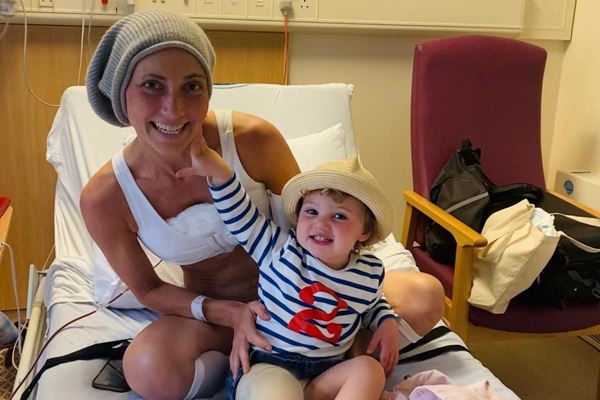
Discover what your donations mean to Victoria & Matilda

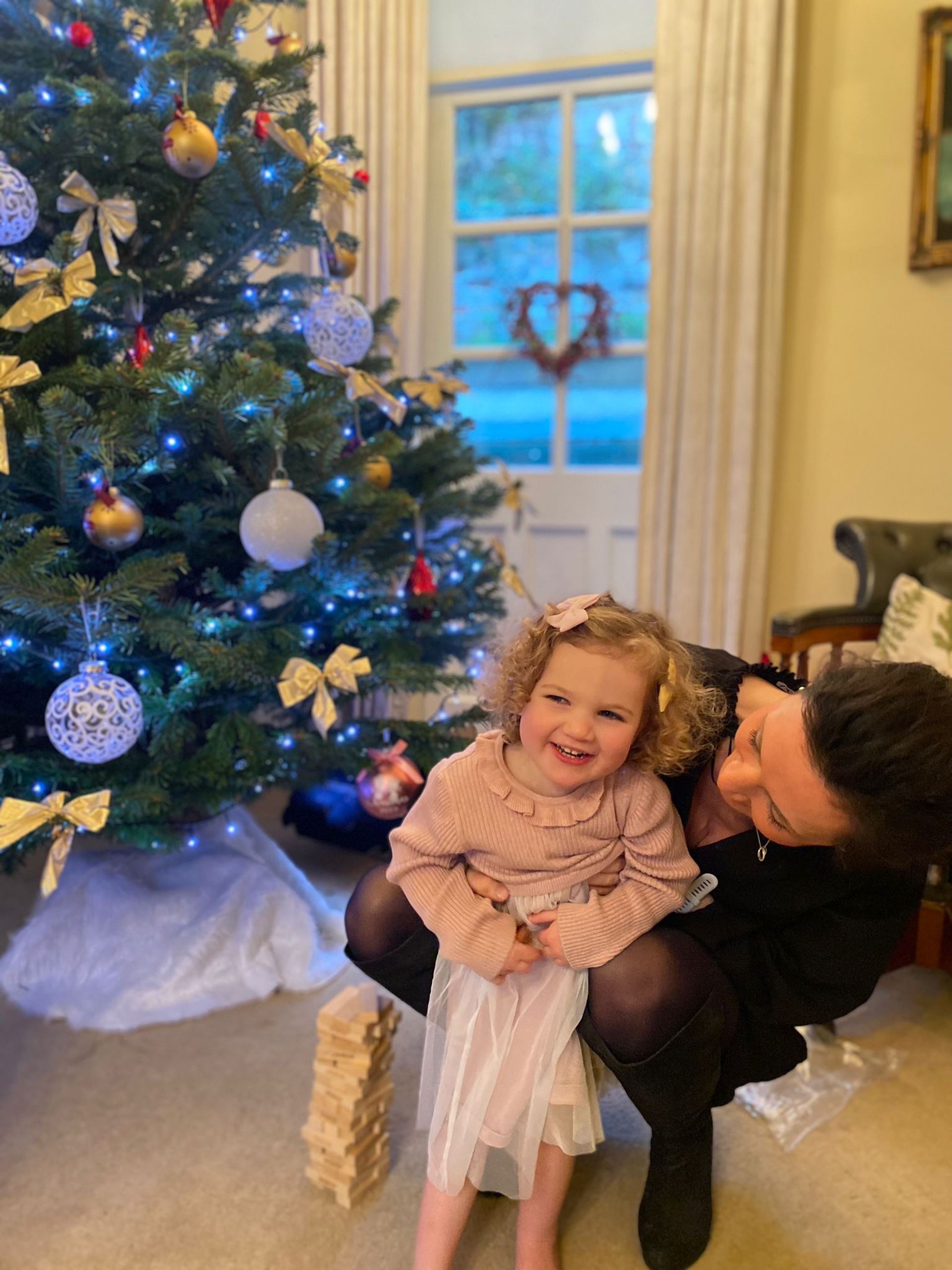
We need your help to keep starting new cures around the world
Will you give £37 to fund an hour of research, or a special gift of your own, so that more families can stay together without the worry of cancer?
The next month I had a double mastectomy and double reconstruction. When Matilda visited me after the surgery, she was so gentle; it’s amazing how kids can sense when they need to be calm and take care – she even asked the doctors to check her over, and they played along, which she loved!
It’s been a hard year with constant trips in and out of hospital, but now that the physical treatment is almost over, I’m looking forward to an easier 2022 – however, I know the emotional impact will last for many more months.
Matilda has been my rock; she’s made me laugh every day, and has been a much-needed distraction.
In 2014 I was tested for the BRCA1 and BRCA2 mutations after finding a few lumps (all non-cancerous at the time) and having a family history of breast cancer. The tests came back negative.
After my diagnosis, I was tested again as, since my original test, there have been six further mutations discovered that can increase the risk of developing breast cancer. The results confirmed that I have a mutation in my ATM (Ataxia-Telangiectasia Mutated) gene.
This mutation is thought to increase the chance of developing breast cancer. Even though I carry this mutation, it’s still much less common to be diagnosed with breast cancer at 34.
Following the news, my parents were tested to see which side of the family the gene had come from – it was my dad. My dad and sisters were tested and are awaiting results.
Matilda won’t be tested yet as she is so young, and thankfully this mutation doesn’t cause any childhood cancers. By the time she is 18 and old enough to take the test, technology and treatment options will have advanced so much that I hope it won’t be a concern for her.
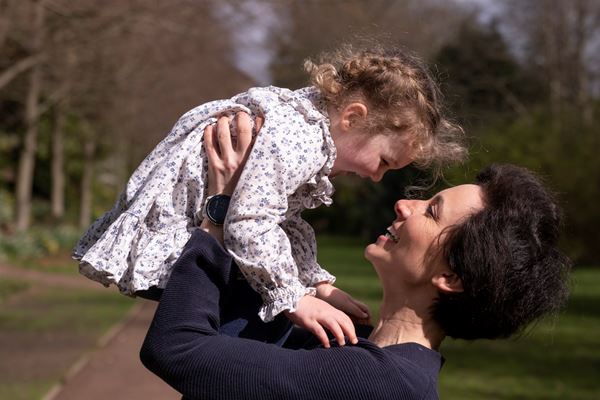
I hope I will have more children one day.
Two hours after being told of my cancer diagnosis, I had a phone call from the fertility clinic. They had received my referral, and I had an appointment the following morning to discuss my options. At the time, I was trying to process the news and couldn’t take it all in.
Looking back, it’s amazing that within those two hours, the wheels were put in motion to protect my eggs – I can’t thank the NHS enough!
Cancer treatments can affect fertility in different ways – chemotherapy can affect the ovaries, causing fewer or no eggs to be produced. I don’t know what my future holds, so freezing my eggs was a necessary step to take, even if it was all very overwhelming.
It’s all been made possible with Matilda by my side.
Although it’s been a difficult journey, I have also made some amazing memories to look back on. I love connecting with fellow cancer fighters and celebrating their stories as they’ve gone on to live happy, healthy, long lives.
There was a feeling of hopelessness when I got my first diagnosis. I want to share my story to help raise awareness about breast cancer in younger women and let people know they are not alone.
I can’t believe how much my body has been through over the last year – I really don’t recognise the person looking back at me in the mirror. I am so proud of what it has been through; I feel so much stronger than this time last year – both physically and mentally.
The research that has taken place over the years and the subsequent treatment options are the reason I am where I am today.
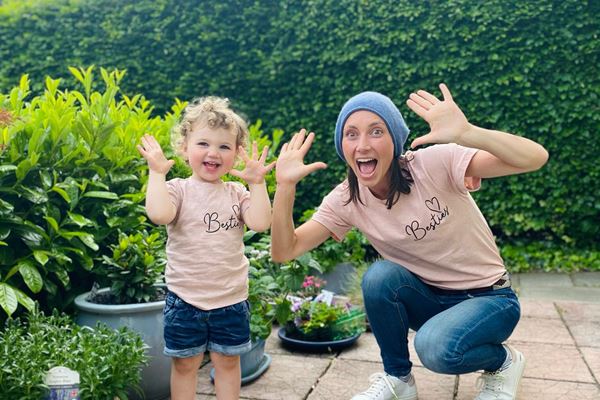
“I’m hopeful Matilda and I will have our happy ending, all thanks to the lifesaving research made possible by charities like Worldwide Cancer Research and the remarkable support I received from our NHS.”
Will you become a Curestarter today and give hope to families like Victoria and Matilda of a future with cancer cures?
